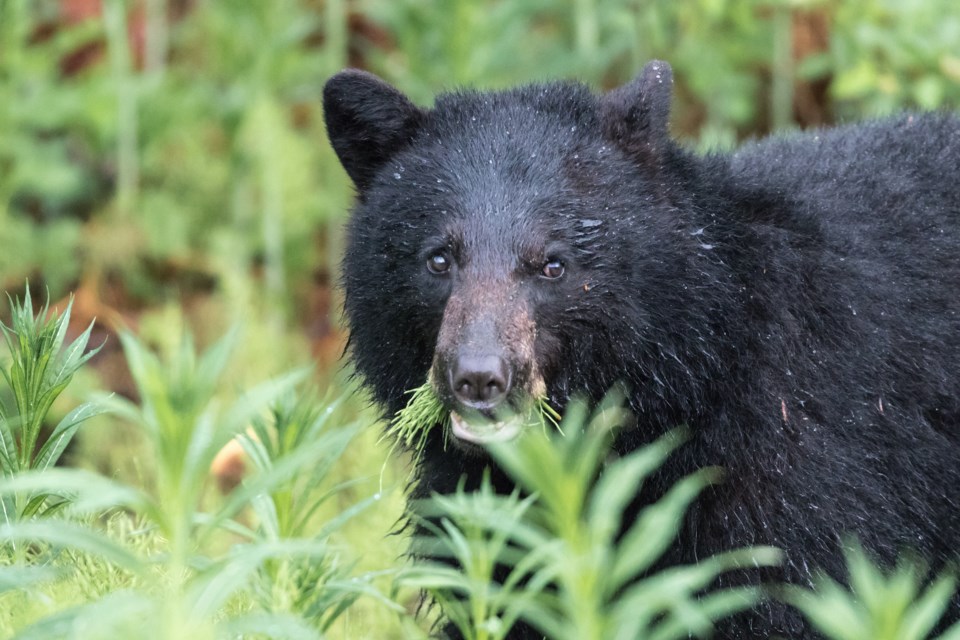Would you pay more in property taxes if it meant more protection for black bears in your community?
That is one of the survey questions aimed at local residents within the Pacific Rim area and Squamish.
Conservation advocacy group The Fur-Bearers, and UBC researchers within the Faculty of Land and Food Systems have teamed up to create a survey that gauges folks' motivation and knowledge around coexistence with black bears.
Lesley Fox, director of The Fur-Bearers, says data collected from survey responses will be translated into suggestions for improving current educational materials, new forms of outreach, and will offer fresh insight into perspectives people have around the efficacy of programs already in place.
"The purpose of this survey is to measure people's perceptions of black bears," Fox told The Squamish Chief.
"So, their perceptions of black bears as it relates to education, and messaging and their community. Knowledge of attractant management, their tolerance for mitigation strategies — how do people feel about using loud noises to scare bears? How do people feel about shooting bears? What levels of response are appropriate for what behaviour? And how do people feel about that?"
The survey takes about 10 minutes to complete fully.
This is the second year Fur-Bearers have worked with UBC on such surveys and Fox said what she has learned so far is that B.C. has plenty of animal lovers.
"I'm really excited to see the results for Squamish because I believe Squamish to be a community of animal lovers," she said. "And in fact, Squamish has actually done a very good job of managing so-called human-wildlife conflict. And I think Squamish is probably one of the leaders when it comes to coexisting with wildlife compared to other communities. I think there's a lot we can learn from Squamish, and how people perceive wildlife, what kinds of education tools are available, and maybe some of the things that aren't working so great."
Because the Sea to Sky is a tourism hotspot, there is also a survey question about how locals feel visitors interact with bears.
With the current population boom in Squamish, the survey will, ideally, gauge what new residents know and think about bears, Fox said.
The survey comes at the start of spring as bears are being seen more frequently out and about.
"Bears are on the move and they're starting to become top of mind," Fox said. “It's a great reminder for people to take a look around their property. Now is the time to manage attractants. With the warmer weather, you're bringing in bird feeders, hummingbird feeders, not leaving pet food outside... People need to be mindful of their garbage — store their garbage [and compost] properly."
Fox added that pets should be kept on a leash unless in a designated off-leash area to avoid possible negative interaction with bears.
The Human-Bear Conflict survey is open until mid-April.
The District of Squamish website has more information about local bears and tips to keep them safe.


